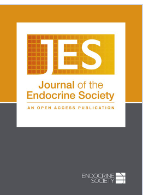Dustin M Brown, Hsiu-Chi Lee, Shi Liu, Charles M Quick, Lorenzo M Fernandes, Frank A Simmen, Shaw-Jenq Tsai, Rosalia C M Simmen
Abstract
Progesterone (P) resistance is a hallmark of endometriosis, but the underlying mechanism(s) for loss of P sensitivity leading to lesion establishment remains poorly understood.
Objective
To evaluate the association between Notch-1 signaling activation and P resistance in the progression of endometriosis.
Design
Case control study; archived formalin-fixed, paraffin-embedded tissues.
Setting
University hospitals (United States, Taiwan).
Patients
Women with endometriosis; human endometrial stromal cell line (HESC).
Intervention
Eutopic endometria (EU) and ectopic lesions (ECs) were collected from surgically diagnosed patients. Archived tissue sections of EU and ECs were identified. HESCs were treated with N-[N-(3,5-difluorophenacetyl)-l-alanyl]-S-phenylglycine t-butyl ester (DAPT) and valproic acid (VPA) to, respectively, suppress and induce Notch-1 activation.
Outcome Measures
Tissues were analyzed for Notch Intra-Cellular Domain 1 (NICD1) and progesterone receptor (PGR) protein expression by immunohistochemistry and for transcript levels of NICD1 target genes HES1, PGR, and PGR-B by quantitative reverse transcription polymerase chain reaction. DAPT- or VPA-treated HESCs with and without P cotreatment were evaluated for cell numbers and for PGR, HES1, and PGR target gene DKK1 transcript levels.
Results
Nuclear-localized stromal NICD1 protein levels were inversely associated with those of total PGR in EU and ECs. Stromal ECs displayed higher HES1 and lower total PGR and PGR-B transcript levels than EU. In HESCs, DAPT reduction of NICD1 decreased cell numbers and increased PGR transcript and nuclear PGR protein levels and, with P cotreatment, maintained P sensitivity. Conversely, VPA induction of NICD1 decreased PGR transcript levels and, with P cotreatment, abrogated P-induced DKK1 and maintained HES1 transcript levels.
Conclusions
Aberrant Notch-1 activation is associated with decreased PGR that contributes to P resistance in endometriosis.
Keywords: ectopic lesions, endometriosis, NICD1, Notch-1, progesterone receptor
Journal of the Endocrine Society, Volume 2, Issue 7, July 2018, Pages 765–778, https://doi.org/10.1210/js.2018-00007




